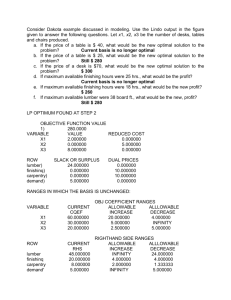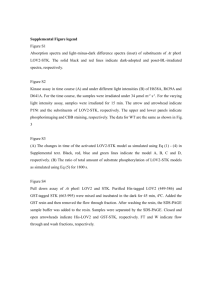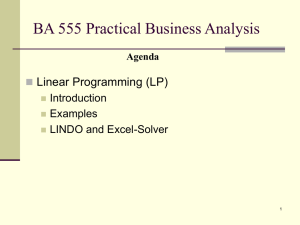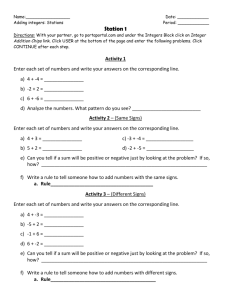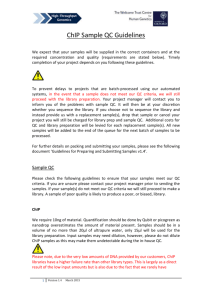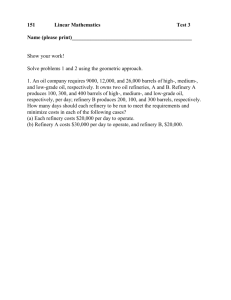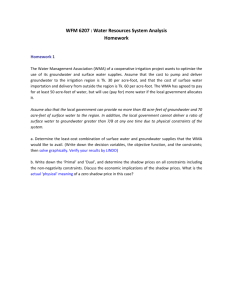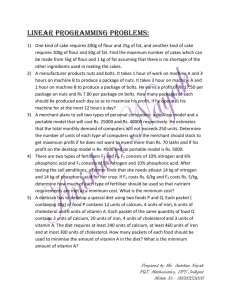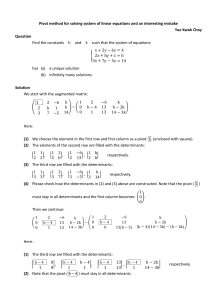Homework 2
advertisement
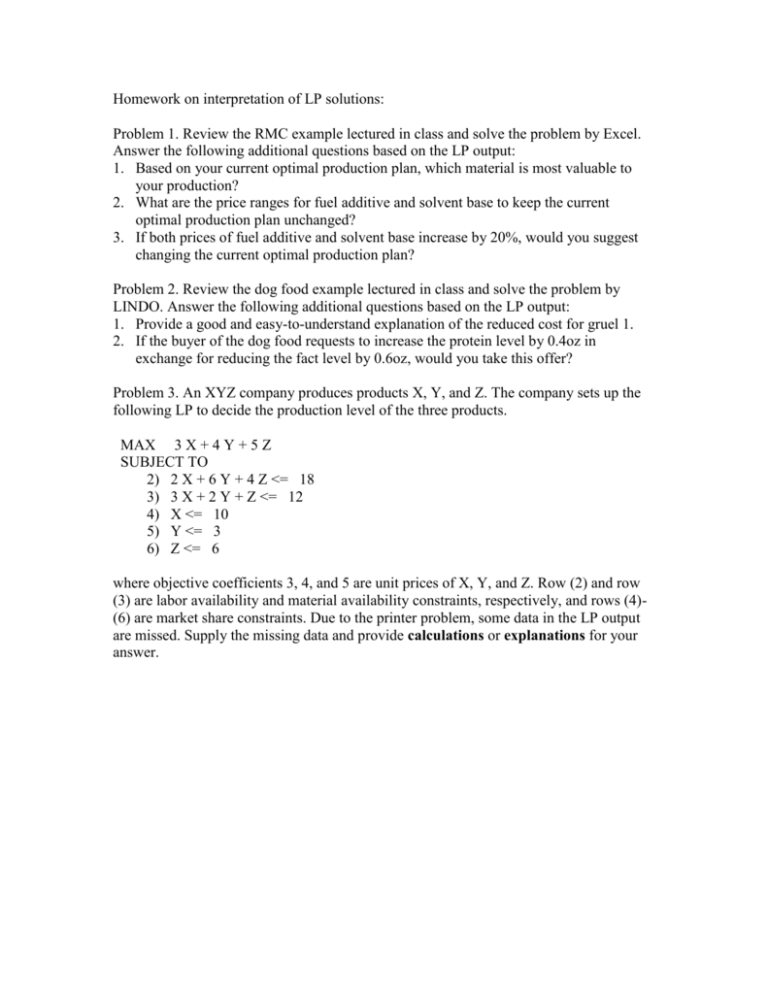
Homework on interpretation of LP solutions: Problem 1. Review the RMC example lectured in class and solve the problem by Excel. Answer the following additional questions based on the LP output: 1. Based on your current optimal production plan, which material is most valuable to your production? 2. What are the price ranges for fuel additive and solvent base to keep the current optimal production plan unchanged? 3. If both prices of fuel additive and solvent base increase by 20%, would you suggest changing the current optimal production plan? Problem 2. Review the dog food example lectured in class and solve the problem by LINDO. Answer the following additional questions based on the LP output: 1. Provide a good and easy-to-understand explanation of the reduced cost for gruel 1. 2. If the buyer of the dog food requests to increase the protein level by 0.4oz in exchange for reducing the fact level by 0.6oz, would you take this offer? Problem 3. An XYZ company produces products X, Y, and Z. The company sets up the following LP to decide the production level of the three products. MAX 3 X + 4 Y + 5 Z SUBJECT TO 2) 2 X + 6 Y + 4 Z <= 18 3) 3 X + 2 Y + Z <= 12 4) X <= 10 5) Y <= 3 6) Z <= 6 where objective coefficients 3, 4, and 5 are unit prices of X, Y, and Z. Row (2) and row (3) are labor availability and material availability constraints, respectively, and rows (4)(6) are market share constraints. Due to the printer problem, some data in the LP output are missed. Supply the missing data and provide calculations or explanations for your answer. OBJECTIVE FUNCTION VALUE 1) (a) VARIABLE VALUE REDUCED COST X 3.000000 (b) Y .000000 (c) Z 3.000000 .000000 ROW SLACK OR SURPLUS DUAL PRICES 2) (d) 1.200000 3) .000000 .200000 4) (e) .000000 5) 3.000000 .000000 6) 3.000000 (f) OBJ COEFFICIENT RANGES VARIABLE CURRENT ALLOWABLE ALLOWABLE COEF INCREASE DECREASE X 3.000000 12.000000 .500000 Y 4.000000 3.600000 (g) Z 5.000000 1.000000 2.571429 Problem 4. An XY company produces products X and Y. The company sets up the following LP to decide the production level of the two products. MAX 3 X + 4 Y SUBJECT TO 2) X + 2 Y <= 6 3) 3 X + 2 Y <= 10 4) X <= 10 5) Y <= 6 Similar to the previous problem, objective coefficients 3 and 4 are unit prices ($/unit) for X and Y, respectively. Rows (2), (3), (4)-(5) are labor, material, and market share constraints, respectively. Solve the problem by LINDO and answer the following questions based on the LP output: a. The company is considering introducing a new product Z, which will sell at $5/unit and each unit of Z will take 2 units of labor and 3 units of material. Would you recommend producing the new product? b. Are you interested in selling 3 units of the current labor at the profit of $4.5? Why? c. Due to the increase of market demand, the prices of X and Y change to $4/unit and $5/unit, respectively. Do you recommend changing the current production plan? Why? By how much the profit will change due to the price change? d. The company has discovered a way of reducing the amount of labor used in manufacturing product Y from 2 hours (units) to 1.9 hour by replacing one of the assembled portions by an integrated circuit chip. Give an estimate of the increase in profit due to this change, exclusive of the chip cost. (Hint: translate the improvement in technology to savings in resource first.) e. Assuming that labor supply is fixed in the short rum, what is the approximate value of the chip?
